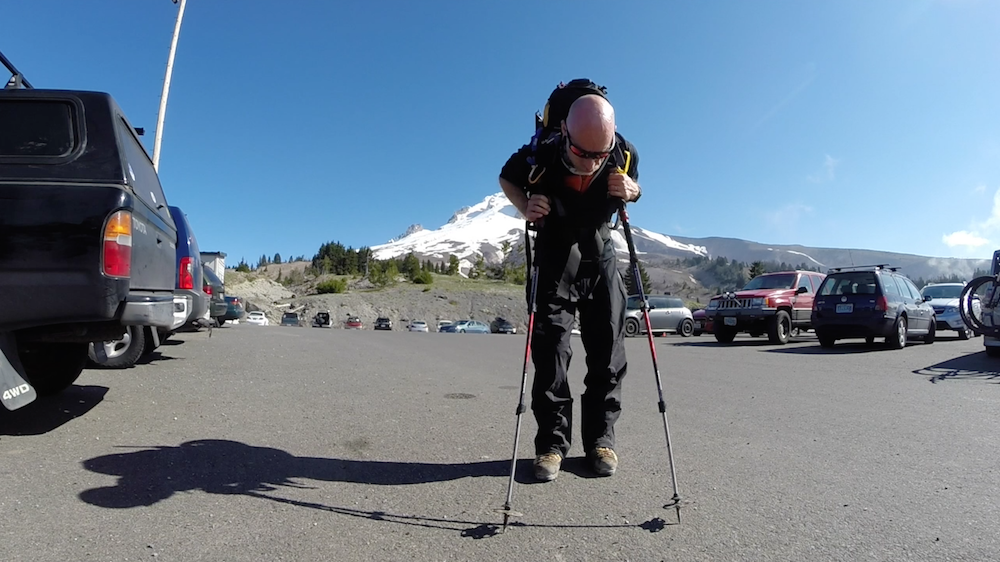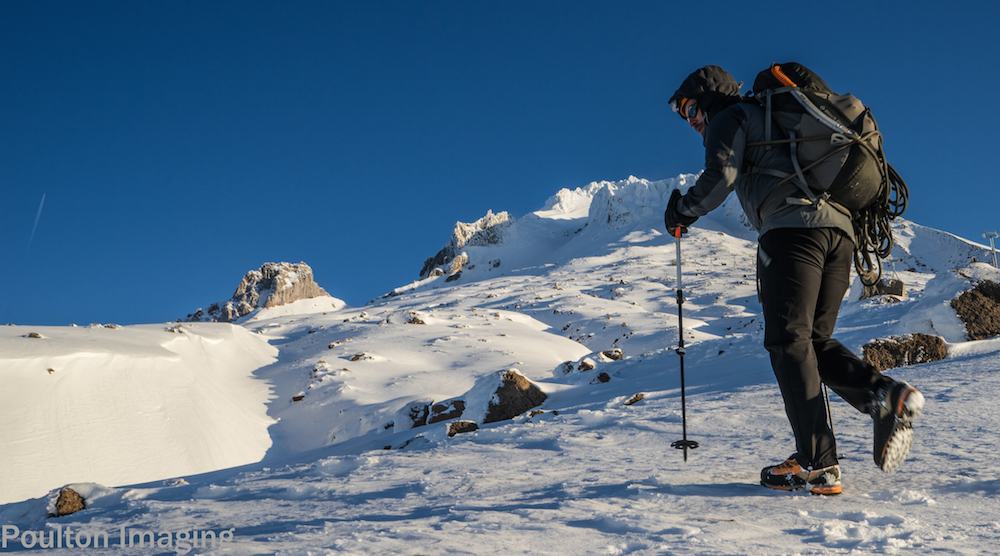800 miles in 17 days, on foot, through the Oregon Desert. Unsupported. In August.
What could possibly go wrong?
Christof Teuscher knows well that the list of potential disasters that could ruin his upcoming desert adventure is long and daunting. That’s one of the things he likes about it.
“The unforgiving environment makes it exciting — and certainly also scary,” he says. “But that’s okay. I like that mix, where you don’t know what’s going to happen, and you’re pushing your limits. You do as much as you can in preparation, but there is still a large part that is up to chance.”
Earlier this summer, Teuscher climbed Mount Adams, ran to Mount Hood, and then climbed Mount Hood, 158 miles and 39,764 feet of elevation gain in 64 hours and 48 minutes. He followed up that Herculean effort with a solo adventure through the Alpine Lakes Wilderness in Washington, and then a brutal ultra-marathon in the Swiss Alps. His Alpine Lakes adventure ended in failure, but his performance in his homeland of Switzerland was a triumph. He took fifth place out of 72 finishers in that 200-kilometer race with a time of 40 hours and 27 minutes, and posted the fastest time for any competitor over 40.
Teuscher’s next adventure will be his most ambitious yet. His plan is to run and hike the entire Oregon Desert Trail, from the Oregon Badlands outside of Bend to the Owyhee Canyonlands near the Idaho border. The route covers 800 miles of harsh desert terrain with little if any water, numerous steep climbs, extreme wildfire danger, and limited cell phone coverage in case something goes wrong.
Teuscher and his wife Ursina have scouted the remote and parched route in detail and buried about 40 food and water caches at steady intervals along the way. Teuscher plans to run and hike solo, about 50 miles per day on average, using GPS to find and dig up his caches for his daily food and water.
And if he fails to find one of his caches?
“That would be a disaster,” he says, laughing. “I would have to starve quite a bit if that happened.”
The fact that Teuscher laughs at the subject of starvation in the desert is telling. For all of his daring and super-human exploits, Teuscher is far from macho, and his adventure stories are often hilariously self-deprecating. He works as an Assistant Professor in the Department of Electrical and Computer Engineering at Portland State University, and his field of study is the future of computers. He says he finds endurance tests excellent for stimulating thought and pushing boundaries.
Only four people have hiked the length of the Oregon Desert Trail. The fastest known time is 34 days. To complete the journey in just 17 days will require extreme mental and physical toughness, not to mention careful planning — and luck.
Teuscher plans to carry a base pack weighing six pounds, with sleeping bag and pad and minimal clothing. His heaviest items are batteries for his GPS, headlamp and run computer. He will not carry a stove. Fully loaded with water and food for the day, his pack will weigh about 12 pounds, which doesn’t seem like much until you’ve hauled it 50 miles a few days in a row.
His food will be dense with calories: peanut butter, beans, nuts, Tailwind ultra-endurance fuel. “There’s not going to be anything fresh,” he says. “It won’t be the most interesting culinary experience.”
He also will be spending a lot of time alone in the desert, another reason to fear as well as anticipate the journey ahead. Teuscher knows from his experience in the Alpine Lakes Wilderness that the mental aspect of a journey can prove just as challenging as the physical demands of endless running. On the Alpine Lakes trip he got completely lost after two nights without sleep and ended up convincing himself that he was traveling in the correct direction — even though he wasn’t. When he learned the truth he was devastated.
“I reached my mental limits,” he wrote in his blog. “It’s very scary when you realize you can’t trust your brain anymore. While thankfully my error had no serious consequences, things could easily have been very different in this or other situations.”
Teuscher says the biggest lesson from his Alpine Lakes failure is the importance of rest. “Sleep deprivation can break you down in many ways,” he says. “So on this next trip I am going to have to make sure to get enough sleep. Two nights without sleep seems to be my limit. Things can go terribly wrong if you don’t sleep. You can survive without sleep for 2, 3 days on these 70-mile trips, but if you are out there for 17 days constantly on the move, that’s a different story. You really have to get the rest you need or you are just going to be a mess.”
He is going to need more than a few good nights of sleep to complete this journey. If Teuscher can manage to pull off the adventure he has planned, it will be a stunning accomplishment that few if any people will rush to match.
His Oregon Desert adventure is set to begin on August 29th, at the Tumulus Trailhead in the Oregon Badlands. Where and when it will end is anybody’s guess, but whatever happens, it will definitely make for a good story.
You can learn learn more about Christof Teuscher’s plans and past accomplishments by linking to his blog here.
Last modified: August 21, 2015


